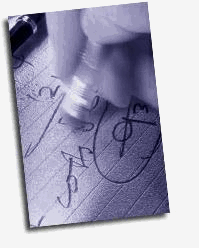
Foul-Up: Dealing with Mistakes
| Продажи | ||||
| Sales.com | ||||
| Keeping... | ||||
by Diane Sanchez, Stephen E. Heiman, and Tad Tuleja
Following up on successes is relatively easy. Following up on foul-ups is a lot more touchy. But it's every bit as important in sustaining good business.
Tony Cueva, a Miller Heiman client associate who has introduced hundreds of his company's salespeople to our programs, is national manager of key sales programs for Ceridian, the country's second largest payroll processor. "We do tens of thousands of payrolls a year," Tony says. "We don't get them all right. Nobody could. We don't deny that, and we don't try to convince our customers that we're infallible. We'll never give them a reference, for example, that will say we never make a mistake. We couldn't get that kind of reference without lying. Instead, we say, judge us on how well we react when we do make a mistake. Talk to our references. Find out how well we fix something when it goes wrong."

Michael Johnson, the driving force behind Becton Dickinson Medical's broad adoption of our sales processes, is his organization's vice-president of sales. Mike echoes Tony's
observation, and he goes even further, suggesting that the best damage control of all may involve the unthinkable tactic of warning customers about problems before they occur.
"We develop new products every year," Mike says. "Sometimes they're not perfect. Sometimes we're still working out the bugs, or we're learning from experimental models. Faced with this type of situation, most companies hide the potential problem. We don't. If we know there's a quality problem, or a potential for failure, with one of our products, we tell our customers up front -- before we have to report it to the FDA.
"Eventually, this approach is a matter of trust, and of building the trust you need to secure good business. We're always asking ourselves, 'How can we ensure that we're credible to our customers?' One way is to share the potential difficulties from the start. You have to ask 'How can we talk to customers about that?' In the long run, this helps you rather than hurting you because customers don't get angry about quality problems. They're realistic enough to know that they're inevitable. They get angry because you don't tell them that something might happen."
Sometimes, this honesty leads to temporary setbacks, Mike admits. "But when that happens, when a customer backs off, we work with them to better understand their solution image. What can we do to work through this potential problem? How can we develop solutions that will benefit us both? Whether the individual sale is successful or not, we're continually moving toward maintaining those Win-Win partnerships."
From Selling Machine, by Diane Sanchez, Stephen E. Heiman, and Tad Tuleja. © 1997 by Miller Heiman, Inc. All rights reserved by permission of Random House, Inc.